-
 Bitcoin
Bitcoin $107,352.1067
0.28% -
 Ethereum
Ethereum $2,429.3531
-0.90% -
 Tether USDt
Tether USDt $1.0001
-0.02% -
 XRP
XRP $2.1894
4.62% -
 BNB
BNB $646.7968
0.36% -
 Solana
Solana $147.4290
4.03% -
 USDC
USDC $0.9998
-0.02% -
 TRON
TRON $0.2756
1.52% -
 Dogecoin
Dogecoin $0.1630
1.14% -
 Cardano
Cardano $0.5612
1.18% -
 Hyperliquid
Hyperliquid $37.0580
-0.05% -
 Bitcoin Cash
Bitcoin Cash $496.9410
-0.09% -
 Sui
Sui $2.7318
3.19% -
 Chainlink
Chainlink $13.1503
0.58% -
 UNUS SED LEO
UNUS SED LEO $9.0766
0.55% -
 Avalanche
Avalanche $17.7220
1.46% -
 Stellar
Stellar $0.2380
1.52% -
 Toncoin
Toncoin $2.8439
0.38% -
 Shiba Inu
Shiba Inu $0.0...01143
1.84% -
 Litecoin
Litecoin $85.8053
1.47% -
 Hedera
Hedera $0.1483
2.70% -
 Monero
Monero $314.3240
2.12% -
 Bitget Token
Bitget Token $4.6725
0.77% -
 Dai
Dai $1.0000
0.00% -
 Polkadot
Polkadot $3.3555
1.28% -
 Ethena USDe
Ethena USDe $1.0001
0.02% -
 Uniswap
Uniswap $7.0890
2.64% -
 Pi
Pi $0.5355
-3.40% -
 Pepe
Pepe $0.0...09393
1.06% -
 Aave
Aave $256.8136
-1.90%
How to ensure the security of blockchain digital currency?
Secure blockchain currency requires robust security: use hardware/software wallets with strong passwords, 2FA, diversify storage, stay updated on threats, and avoid phishing scams.
Mar 11, 2025 at 07:56 am
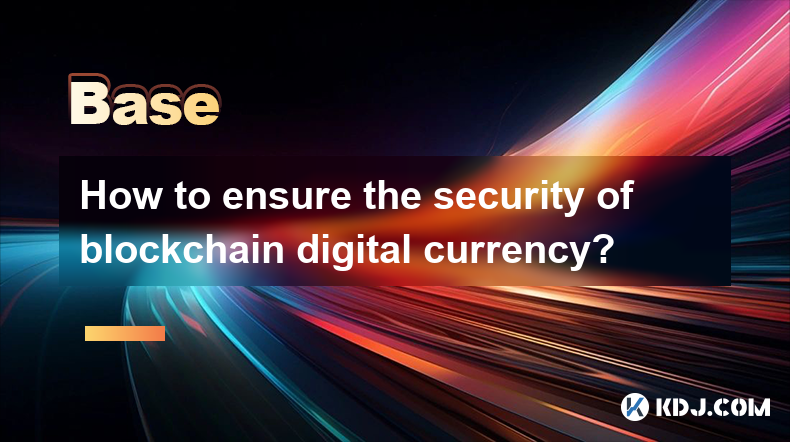
Key Points:
- Understanding the inherent risks associated with digital currency storage.
- Implementing robust security measures for hardware and software wallets.
- Utilizing strong passwords and multi-factor authentication.
- Diversifying storage strategies to mitigate single points of failure.
- Staying informed about evolving threats and best practices.
- Recognizing and avoiding phishing scams and other social engineering attacks.
How to Ensure the Security of Blockchain Digital Currency?
The security of blockchain digital currency is paramount. Unlike traditional banking, there's no central authority to recover lost funds. Understanding and implementing robust security practices is crucial to protect your investment. This involves a multifaceted approach encompassing hardware, software, and personal security habits.
Hardware Wallet Security:
Hardware wallets, physical devices storing your private keys offline, offer the highest level of security. Choosing a reputable brand with a proven track record is essential. Always verify the authenticity of your hardware wallet before use, and be wary of counterfeit devices. Regularly update the firmware to patch any security vulnerabilities.
- Choose a reputable hardware wallet manufacturer.
- Verify the authenticity of your device.
- Keep your device's firmware updated.
- Store your recovery seed phrase securely offline.
Software Wallet Security:
Software wallets, applications storing your private keys digitally, offer convenience but require greater vigilance. Use only reputable software wallets from trusted sources, and regularly check for updates. Avoid downloading software from unofficial websites or untrusted sources. Strong passwords and two-factor authentication (2FA) are crucial.
- Download only from official sources.
- Enable two-factor authentication (2FA).
- Use a strong, unique password.
- Regularly update the wallet software.
- Beware of phishing scams.
Password Management and Authentication:
Strong, unique passwords are the first line of defense. Avoid using easily guessable passwords or reusing passwords across multiple accounts. Implement multi-factor authentication (2FA) whenever possible, adding an extra layer of security to your accounts. Consider using a password manager to generate and store complex passwords securely.
- Use a strong, unique password for each account.
- Enable two-factor authentication (2FA).
- Consider using a password manager.
- Never share your password with anyone.
Diversification and Backup Strategies:
Don't keep all your eggs in one basket. Diversify your storage by using a combination of hardware and software wallets. Regularly back up your recovery seed phrase, the secret key to accessing your funds. Store this phrase offline in multiple secure locations, but never digitally.
- Use a mix of hardware and software wallets.
- Back up your recovery phrase securely.
- Store backups in multiple, secure, offline locations.
- Never store your recovery phrase digitally.
Staying Informed and Avoiding Scams:
The cryptocurrency landscape is constantly evolving, with new threats emerging regularly. Stay informed about the latest security best practices and vulnerabilities. Be wary of phishing scams, which often impersonate legitimate organizations to steal your private keys. Never click on suspicious links or share your private information with unsolicited contacts.
- Stay updated on security news and best practices.
- Be wary of phishing scams and suspicious emails.
- Never share your private keys or seed phrase.
- Verify the legitimacy of any communication before responding.
Network Security:
Ensure your internet connection is secure, using a strong password and keeping your router firmware updated. Use a VPN (Virtual Private Network) when accessing your cryptocurrency accounts on public Wi-Fi networks to encrypt your data and protect your privacy.
- Use a strong password for your Wi-Fi router.
- Keep your router firmware updated.
- Use a VPN on public Wi-Fi networks.
- Avoid using public computers to access your accounts.
Exchange Security:
If you store cryptocurrency on exchanges, choose reputable exchanges with a strong security track record. Enable 2FA and regularly review your account activity for any unauthorized transactions. Be aware that exchanges are a centralized point of vulnerability, and funds held on an exchange are not truly under your control.
- Choose reputable cryptocurrency exchanges.
- Enable two-factor authentication (2FA).
- Regularly monitor your account activity.
- Understand the risks associated with storing funds on exchanges.
Cold Storage:
Cold storage refers to storing your private keys offline, completely disconnected from the internet. This is considered the most secure method for long-term storage. Hardware wallets are a form of cold storage, but you can also write down your recovery phrase and store it securely.
- Use a hardware wallet for cold storage.
- Write down your recovery phrase and store it securely offline.
- Consider using a metal plate or other durable medium for your recovery phrase.
- Never store your recovery phrase digitally.
Regular Audits:
Regularly audit your security practices to ensure everything is up-to-date and secure. Review your passwords, 2FA settings, and software versions. This proactive approach helps identify and address vulnerabilities before they can be exploited.
- Regularly review your passwords and security settings.
- Update your software and firmware regularly.
- Check for any unauthorized activity on your accounts.
- Stay informed about the latest security threats.
Common Questions:
Q: What is a recovery seed phrase, and why is it so important?
A: A recovery seed phrase is a list of words that acts as a master key to your cryptocurrency wallet. It's crucial because if you lose access to your wallet, your seed phrase is the only way to recover your funds. Keep it secure and offline.
Q: What are the risks of using a software wallet?
A: Software wallets are more vulnerable to malware, hacking, and phishing attacks compared to hardware wallets. Your private keys are stored on your device, making them susceptible to theft if your device is compromised.
Q: How can I protect myself from phishing scams?
A: Be wary of unsolicited emails, messages, or phone calls asking for your private keys or login information. Always verify the legitimacy of any communication before responding, and never click on suspicious links.
Q: What is the best way to store my cryptocurrency long-term?
A: For long-term storage, cold storage using a hardware wallet is generally considered the most secure option. This keeps your private keys completely offline, minimizing the risk of theft or hacking.
Disclaimer:info@kdj.com
The information provided is not trading advice. kdj.com does not assume any responsibility for any investments made based on the information provided in this article. Cryptocurrencies are highly volatile and it is highly recommended that you invest with caution after thorough research!
If you believe that the content used on this website infringes your copyright, please contact us immediately (info@kdj.com) and we will delete it promptly.
- RUVI Token Soars: Can It Eclipse Cardano's Forecast?
- 2025-06-29 02:30:12
- Meme Coin Mania: Can Little Pepe Outshine Shiba Inu and Dogecoin?
- 2025-06-29 02:30:12
- XRP Tokens: Navigating Financial Status and the Art of Buying In
- 2025-06-29 02:50:12
- Transparent Fees, Trading Power, No Surprises: LeveX's Honest Approach
- 2025-06-29 02:50:12
- DAO Price, Total Value Locked, and All-Time Highs: What's Driving the DeFi Surge?
- 2025-06-29 03:21:18
- BlockDAG, Polygon, Render, and Polkadot: Navigating the Altcoin Landscape in NYC Style
- 2025-06-29 03:21:18
Related knowledge
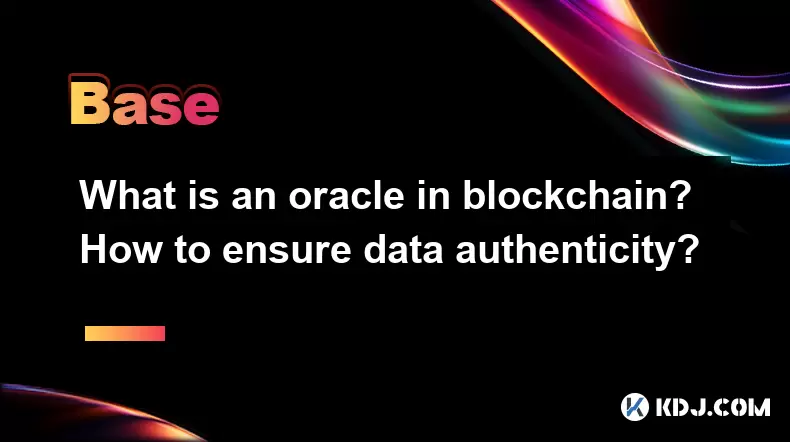
What is an oracle in blockchain? How to ensure data authenticity?
Jun 19,2025 at 08:49pm
Understanding the Role of an Oracle in BlockchainIn the context of blockchain technology, an oracle serves as a bridge between the blockchain and external data sources. While blockchains are inherently secure and decentralized, they cannot access real-world information on their own. Oracles enable smart contracts to interact with off-chain data such as ...
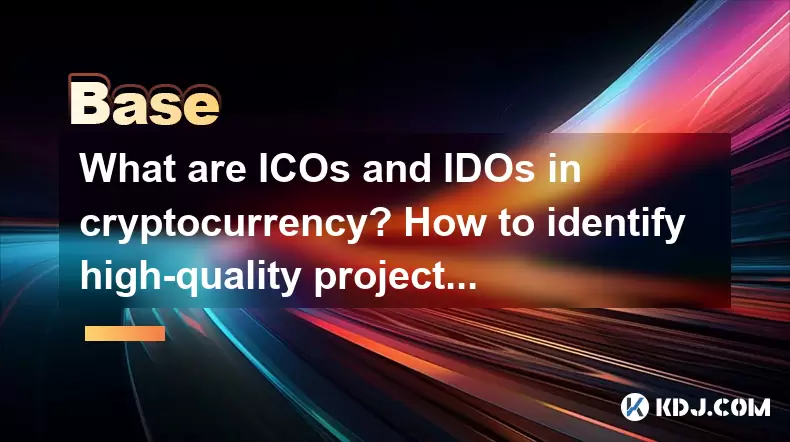
What are ICOs and IDOs in cryptocurrency? How to identify high-quality projects?
Jun 22,2025 at 11:49am
Understanding ICOs in CryptocurrencyInitial Coin Offerings (ICOs) are fundraising mechanisms used by cryptocurrency startups to raise capital for their projects. In an ICO, a company creates and sells its own tokens to investors in exchange for established cryptocurrencies like Bitcoin or Ethereum. The process typically involves the release of a whitepa...
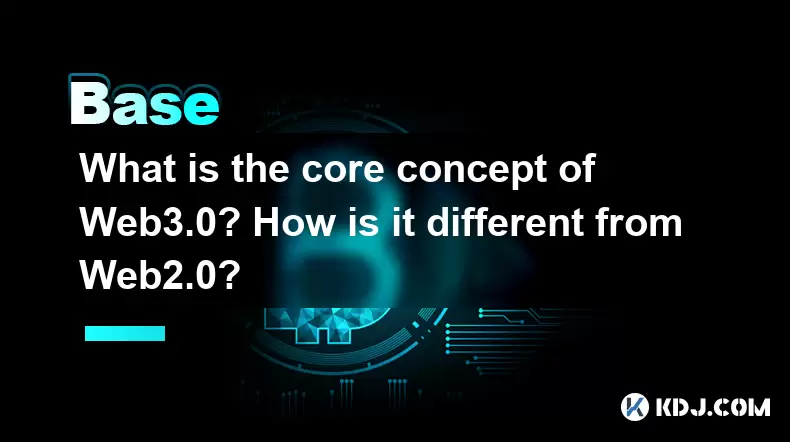
What is the core concept of Web3.0? How is it different from Web2.0?
Jun 21,2025 at 05:56pm
Decentralization as the Foundation of Web3.0The core concept of Web3.0 revolves around decentralization, which fundamentally challenges the centralized architecture of Web2.0. In Web3.0, control and ownership are distributed across a network rather than being held by a central authority or corporation. This is achieved primarily through blockchain techn...
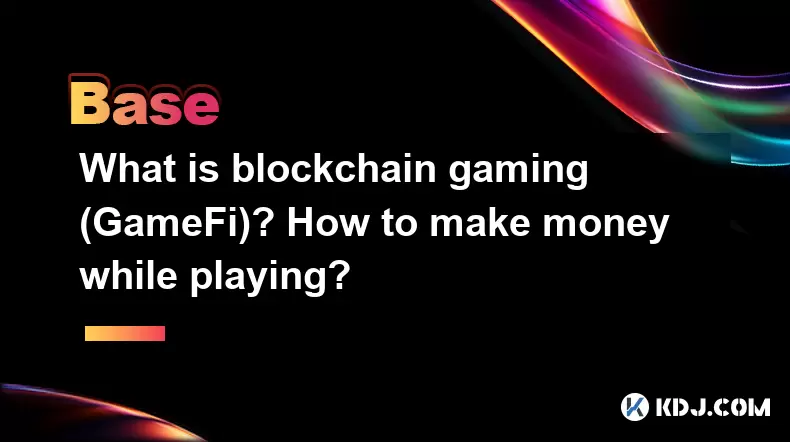
What is blockchain gaming (GameFi)? How to make money while playing?
Jun 20,2025 at 07:56am
Understanding Blockchain Gaming (GameFi)Blockchain gaming, often referred to as GameFi, is a fusion of blockchain technology and video games. It enables players to own in-game assets through non-fungible tokens (NFTs) and earn rewards via cryptocurrencies or token-based systems. Unlike traditional games where items are controlled by centralized develope...
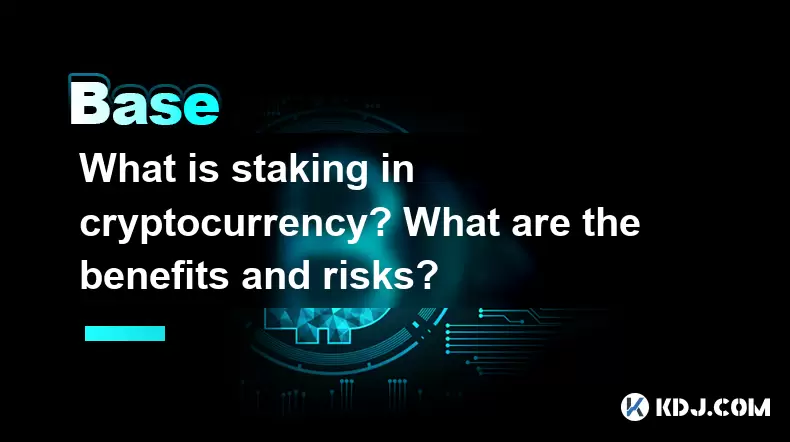
What is staking in cryptocurrency? What are the benefits and risks?
Jun 22,2025 at 10:01am
Understanding the Concept of Staking in CryptocurrencyStaking in cryptocurrency refers to the process of actively participating in transaction validation on a blockchain network that uses a Proof-of-Stake (PoS) consensus mechanism. Instead of miners competing to solve complex mathematical puzzles as in Proof-of-Work systems like Bitcoin, PoS blockchains...
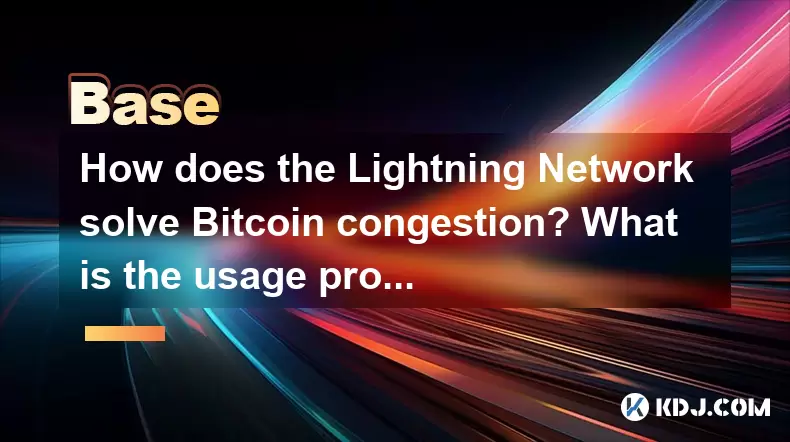
How does the Lightning Network solve Bitcoin congestion? What is the usage process?
Jun 23,2025 at 06:21pm
Understanding Bitcoin Network CongestionBitcoin, as a decentralized digital currency, operates on a blockchain that records every transaction in a public ledger. Each block has a limited size, typically 1 megabyte, which allows for only a certain number of transactions per second (TPS). When the number of transactions increases, the network becomes cong...

What is an oracle in blockchain? How to ensure data authenticity?
Jun 19,2025 at 08:49pm
Understanding the Role of an Oracle in BlockchainIn the context of blockchain technology, an oracle serves as a bridge between the blockchain and external data sources. While blockchains are inherently secure and decentralized, they cannot access real-world information on their own. Oracles enable smart contracts to interact with off-chain data such as ...

What are ICOs and IDOs in cryptocurrency? How to identify high-quality projects?
Jun 22,2025 at 11:49am
Understanding ICOs in CryptocurrencyInitial Coin Offerings (ICOs) are fundraising mechanisms used by cryptocurrency startups to raise capital for their projects. In an ICO, a company creates and sells its own tokens to investors in exchange for established cryptocurrencies like Bitcoin or Ethereum. The process typically involves the release of a whitepa...

What is the core concept of Web3.0? How is it different from Web2.0?
Jun 21,2025 at 05:56pm
Decentralization as the Foundation of Web3.0The core concept of Web3.0 revolves around decentralization, which fundamentally challenges the centralized architecture of Web2.0. In Web3.0, control and ownership are distributed across a network rather than being held by a central authority or corporation. This is achieved primarily through blockchain techn...

What is blockchain gaming (GameFi)? How to make money while playing?
Jun 20,2025 at 07:56am
Understanding Blockchain Gaming (GameFi)Blockchain gaming, often referred to as GameFi, is a fusion of blockchain technology and video games. It enables players to own in-game assets through non-fungible tokens (NFTs) and earn rewards via cryptocurrencies or token-based systems. Unlike traditional games where items are controlled by centralized develope...

What is staking in cryptocurrency? What are the benefits and risks?
Jun 22,2025 at 10:01am
Understanding the Concept of Staking in CryptocurrencyStaking in cryptocurrency refers to the process of actively participating in transaction validation on a blockchain network that uses a Proof-of-Stake (PoS) consensus mechanism. Instead of miners competing to solve complex mathematical puzzles as in Proof-of-Work systems like Bitcoin, PoS blockchains...

How does the Lightning Network solve Bitcoin congestion? What is the usage process?
Jun 23,2025 at 06:21pm
Understanding Bitcoin Network CongestionBitcoin, as a decentralized digital currency, operates on a blockchain that records every transaction in a public ledger. Each block has a limited size, typically 1 megabyte, which allows for only a certain number of transactions per second (TPS). When the number of transactions increases, the network becomes cong...
See all articles

























































































